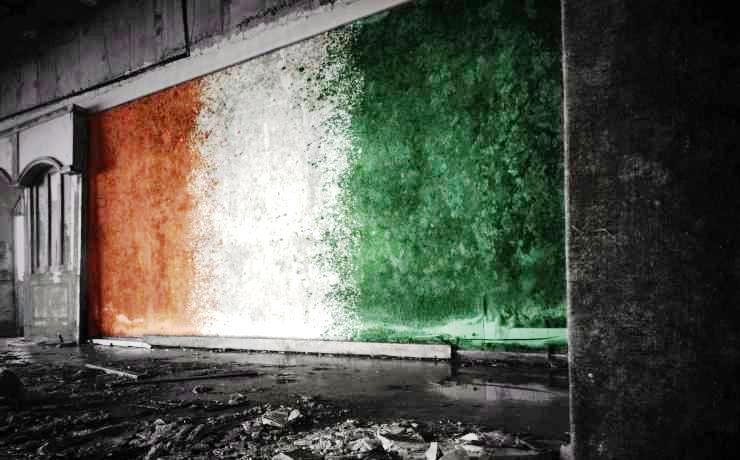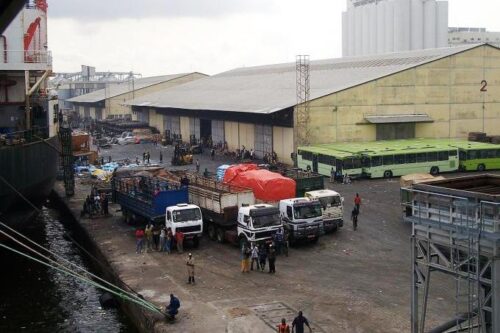Between terrorist threats and Unsolved problems.

The political instability seen before, the ethnic tensions both in the country and in the region, the collapse of the institutions in some of the neighbouring countries (first Mali then Burkina Faso) and other factors created the conditions for an increase of the terrorist
risk in Ivory Coast
Jihadist groups linked to Al Qaeda or the Islamic State have been targeting the Gulf of Guinea country for years. On 13 March 2016 Al Qaeda militias attacked in Grand Bassam and killed 19 people. The fact that the attack took place on the coast near Abidjan proved that extremists based in the Sahel region (especially in Algeria and Mali) had the capabilities to strike in all of West Africa. It is true that there was no new attack in the south of Ivory Coast since then, and that there was no major attack. But the risk is still there and increased in the latest years.
The absence of institutions that could defend law and order in Sahel countries gave jihadists the possibility to set up their bases, to recruit new militants, to spread their propaganda and in some cases to take control of swaths of territory. Jihadists exploit the weaknesses of the states of the region, and especially of their security forces. First of all, they take advantage of the insufficient checks at the borders to move from country to country. So, they could attack in Ivory Coast and then retreat to their bases on the other side of the border.
This is what is happening, as an example, in northern areas of Benin and, on a smaller scale, in Togo.

Jihadists exploit the weaknesses of the states of the region, and especially of their security forces.(Photo Swm Archive)
Even if Ivory Coast is still not a target like Benin or Togo, the situation could worsen dramatically and rapidly. Jihadism in the country is not yet an indigenous phenomenon, even if extremists are trying to gain some foothold. But the armed groups based elsewhere can sustain the offensives of Ivorian security forces due to their resources. At this moment, on a strategical level jihadist seem to focus their attention and efforts on Benin and Togo, where there have been several terrorist attacks. But Ivory Coast is one of the most influential countries of the region, and therefore is a major target.
And its weaknesses can be easily exploited by extremist. A terrorist escalation in Ivory Coast may be only a matter of time, despite the efforts to avoid it put in place by the government.
Another worrying trend is the increase in shipments of cocaine coming from South America in Ivorian ports. Criminal gangs seem to use West African countries as hubs in the routes towards Europe. Ivorian authorities are concerned by this dynamic because they discovered that international crime organizations established networks in the country and bribed Ivorian public officials. They acted swiftly to neutralize those networks. But the infiltration of those structures in the institutions and the economy could have a devastating effect.

The increase in shipments of cocaine coming from South America in Ivorian ports. Warehouses and transport trucks at the port of Abidjan. CC BY-SA 2.0/Romain Seaf
An economist by training, Ouattara seems to think that in the long term the economic development will solve the problems for Ivory Coast. But the experience shows that this idea is tricky since in fact the new wealth could create more reasons to fight. Ivory Coast continued to be one of the leading economies of the region even during the moments of civil war. But the economic relative prosperity did not help to bring peace. The exploitation of oil reserves in the next years could bring new resources and new wealth but could also exacerbate the existing tensions. The discontent over how oil revenues will be distributed could add up to the existing grievances, such as the abuses endured during the civil wars.The mutual mistrust among the ethnicities could end delegitimizing the institutions. It is fostered by the sentiment of impunity since a vast part of those who committed crimes (such as killings and rapes) during the civil wars was neither judged nor convicted. In these days many political leaders are preaching for peace and reconciliation. But some of them in the past called for violence and have not been punished for that. Therefore, they could return to incite confrontation if they deem it useful.

Ivory Coast continues to be one of the leading economies of the region.
With different levels of involvement, all of the three leaders are politically responsible for what happened in the past decades. Their rivalry for power risked tearing their country apart. Konan Bédié created the ideology of Ivoirité, that is a form of institutionalised racism and worsened the rifts between the ethnic groups. Gbagbo espoused this ideology when he was at the top. He also refused to cede power after the electoral commission proclaimed a result he did not like and therefore created the conditions for a new civil war. This civil war was won by the armed groups that supported Ouattara and committed abuses against the part of population that was pro-Gbagbo. But the incumbent chief of state seems to have shied away from any judgement about the behaviour of his militias. If the Ivorian political elite will not be able to break free from this circle of rivalry and conflict and to come to terms with the recent past on political and judiciary level the future will end up resembling the past, but for the worse.
Andrea Carbonari



